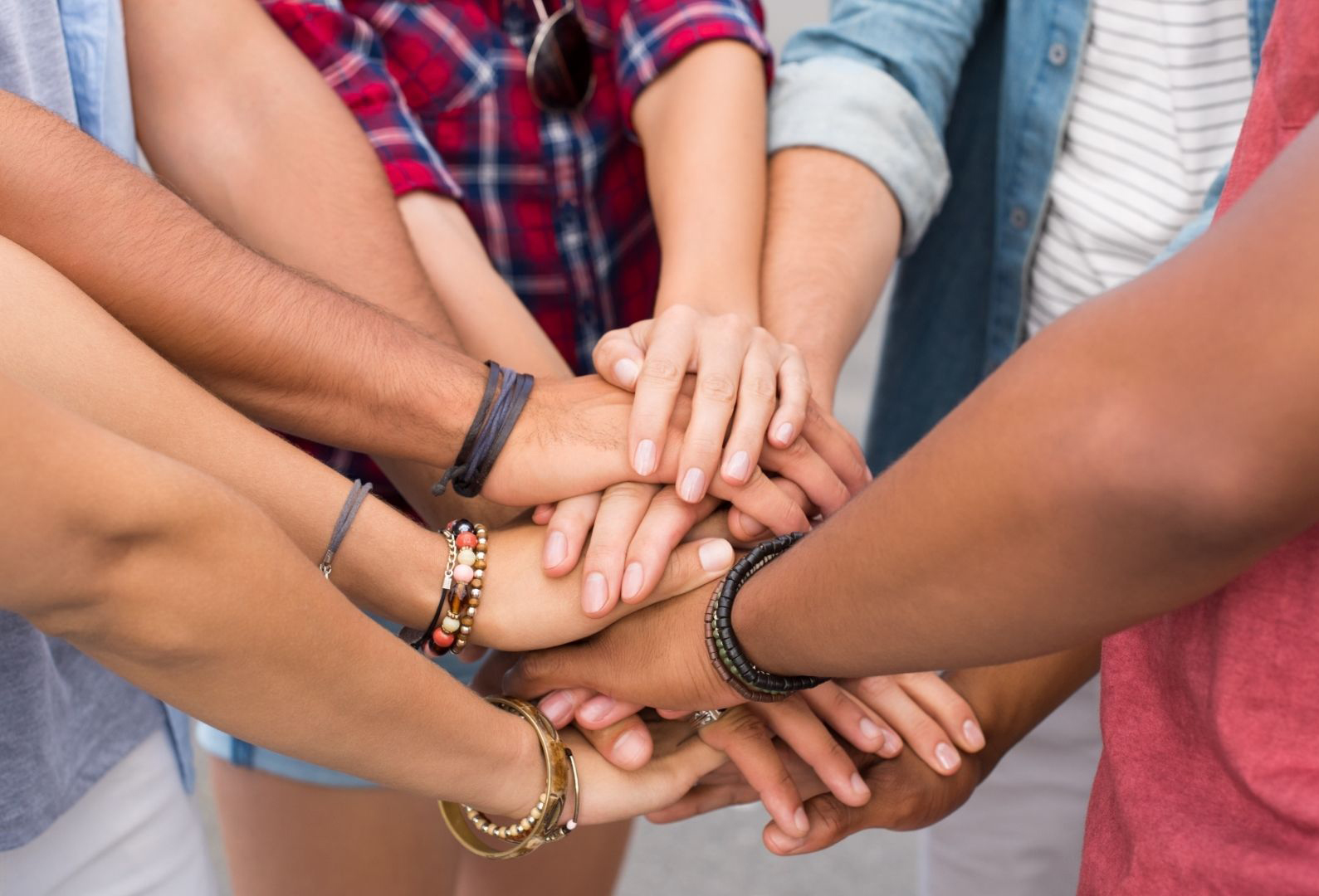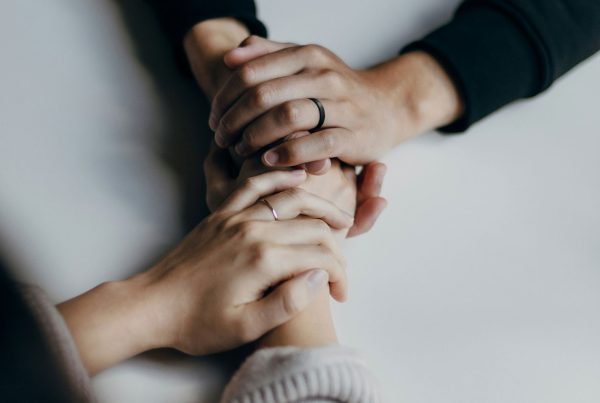Mental health plays a key role in our physical well-being — if we are not doing well mentally, oftentimes we are also not doing well physically. This poses various challenges in our everyday lives such as carrying out daily tasks or completing work assignments.
Just like others, the lesbian, gay, bisexual, transgender (LGBT+) community faces hurdles everyday. Yet these individuals may experience even greater difficulties in caring for their mental health as a consequence of prejudices that still exist today. Accordingly, research has shown that individuals in the LGBT+ community experience mental health issues at higher rates: 61% have depression, 45% have post traumatic stress disorder (PTSD) and 36% have an anxiety disorder.
LGBT+ Mental Health Statistics
The LGBT+ community experience higher rates of mental health issues, but there is no answer as to why these discrepancies exist; however, we can all agree that the continuation of societal stigma and discrimination against the LGBT+ community certainly contributes. The following will list some frightening statistics of the LGBT+ community in order to raise awareness of the hardships this community faces everyday.
- 4.5% of the U.S. population identifies as lesbian, gay, or bisexual
- 39% report having a mental illness in the past year
- 30% of gay youth attemp suicide at least once by the age of 15
- Suicide is the leading cause of death among Gay and Lesbian youth nationally
- 20% of homeless youth are LGBT+ whereas the general youth population is only 10% LGBT+
- According to the U.S. Transgender Survery, 23% of transgender individuals avoid seeing doctors due to the fear of mistreatment
- 44% of LGBT+ adults are likely to have problems with alcoholism
- 57% of the LGBT+ community have said that they or a friend or family member have been threatened or non-sexually harassed, 51% have been sexually harassed, and 51% have experienced violence
- 40% of LGBT+ adults have experienced rejection from family members or close friends
- 53% of LGBT+ adults feel isolated, 2x as likely to live alone
- Loneliness has the potential to shorten an individual’s life by 15 years
LGBT+ Population
The hope is that the increasing rate of those identifying as part of the LGBT+ community suggests that our society is becoming more welcoming and accepting. According to Gallup’s latest survey update on LGBT+ identification, 5.6% of the U.S. adult population identifies as part of the LGBT+ community, which is up 4.5% from 2017 data.
Among LGBT+ U.S. Adults, 54.6% identify as bisexual, 24.5% as gay, 11.7% as lesbian, 11.3% as transgender and 3.3% as other. The cohort with the biggest increase of LGBT+ identification includes members of Generation Z (i.e., young adults aged 18 to 23 in 2020).
LGBT+ Self-Identification by Generation (Gallup, 2020):
- Generzation Z (1997-2002) – 15.9% LGBT, 78.9% Straight/Heterosexual, and 5.2% No opinion
- Millennials (1981-1996) – 9.1% LGBT, 82.7% Straight/Heterosexual, and 8.1% No opinion
- Generation X (1965-1980) – 3.8% LGBT, 88.6% Straight/Heterosexual, and 7.6% No opnion
- Baby boomers (1946-1964) – 2.0% LGBT, 91.1% Straight/Heterosexual, and 6.9% No opinion
- Traditionalists (born before 1946) – 1.3% LGBT, 89.9% Straight/Hetersexual, and 8.9% No opinion
Mental health challenges and barriers for the LGBT+ community
The LGBT+ community faces several challenges when it comes to reaching out and seeking medical care for both mental and physical health — which can be due to stigmas that surround mental illness or discrimmination against their identity. In order to break barriers, we must raise awareness to gain a better understanding of the inequalities the LGBT+ community faces in relation to high-quality and culturally appropriate mental health care. Here are three quick facts to get us started:
- The LGBT+ community are more than twice as likely to have a mental health disorder compared to hetersexual men and women
- The LGBT+ community are 2.5 times more likely to experience depression, anxiety, and substance abuse
- In the LGBT+ community, women who identifiy as lesbian or bisexual are more than twice as likely to engage in heavy alcohol use
Research has shown that the LGBTQ+ community face disturbing rates of heavy discrimmination specifically in healthcare settings which therefore deters them from seeking any medical care. They also often find themselves running into the problem of being unable to find alternative services if they are denied necessary medical care. Below you will find 10 stats that emphasize the discrimination that keep members of the LGBT+ community from seeking medical care:
- More than 50% of LGBT+ individuals experience some form of healthcare discrimination
- 1 in 5 trans individuals has been denied health coverage because of their status
- 50% of trans individuals reveal encountering a significant lack of provider knowledge
- 28% of trans and gender non-conforming (GNC) individuals have delayed seeking medical care due to discrimination and disrespect
- LGBT+ people are of color are more than twice as likely to avoid a doctors office due to different forms of discrimination
- 75% of lesbians delay or avoid healthcare all together
- When one experiences healthcare discrimination they are three times more likely to postpone care in the same year
- 16% of LGBT+ patients choose to disclose their sexual orientation to their doctor
- 80% of first year medical students indicated implicit bias aganist gay and lesbian individuals and 50% indicated explicit bias
- More than 175 anti-LGBT+ healthcare laws were proposed in 32 states around the U.S. in 2016
We asked one of our Remedy providers, Jordan Swiskow, who has psychiatric care experience with LGBT+ individuals and worked at the Los Angeles LGBT Center, some of the mental health challenges for the LBGT+ community that she’s seen.
“I would say the biggest challenge or barrier is still stigma. Arund 1/4 of transgender people will avoid seeking mental health treatment because they fear discrimination. Additionally, a shortage of providers that are educated in LGBT+ issues and/or HIV is a big one and if this is evident in Los Angeles then it’s likely an issue in other geographic locations. Finally, lack of social support can be another challenge; being “rejected” by a family member is common and for LGBT+ youth, over 80% have been bullied at school.”
- Jordan Swiskow, PMHNP-BC
Mental health resources for LGBTQ+ individuals
With more individuals joining the LGBTQ+ community, it is important for them to have easy access to mental health resources. Here is a compiled list of several resources:
- Psychology Today is an excellent resource for finding a therapist, teletherapy, or psychiatrist that is LGBT+ friendly — they offer several tools and filters to find someone who works right with you
- The Healthcare Equality Index examines the policies and practices of healthcare facilities with regard to the equity and inclusion of LGBTQ+ patients, visitors and staff
- CenterLink LGBT Community Center Member Directory is a member-based community to support the development of resilient and inclusive LGBT+ community centers — there are 310 CenterLink member locations around the world
- The American Psychological Association offers educational and support services on a range of LGBT+ topics
- The LGBTQ National Help Center is a confidental peer support platform serving the LGBTQ+ youth, adults, and seniors via phone, text, and online chat
- Lighthouse is a tool that helps you find LGBT+ affirming healthcare providers in your area (i.e., surgeon, dentist, primary care, therapist)
- Crisis Text Line provides texters with trained volunteer Crisis Counselors to communicate with during times of crisis
- Trans Lifeline is a nonprofit organization dedicated to the well being of transgender individuals and is staffed by transgender individuals
- An Ally’s Guide to Terminology is a resource that offers an overview of essential vocabulary, terms to avoid and key messages for talking about various issues
Los Angeles LGBT Center offers several resources for health services, social services & housing, culture & education, and leadership & advocacy







